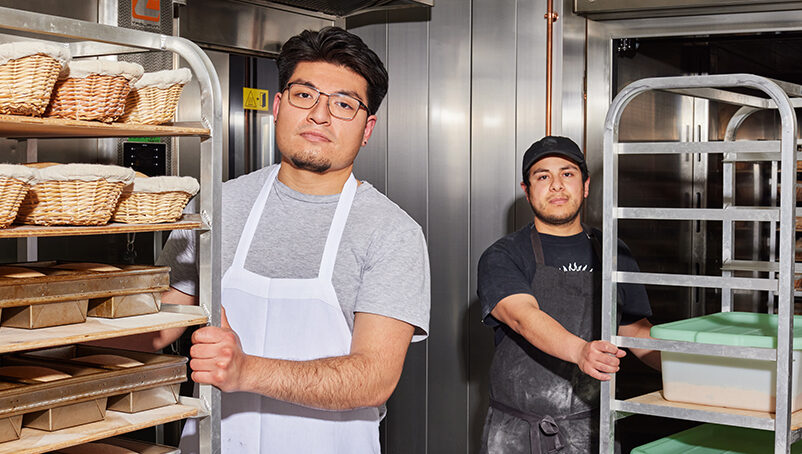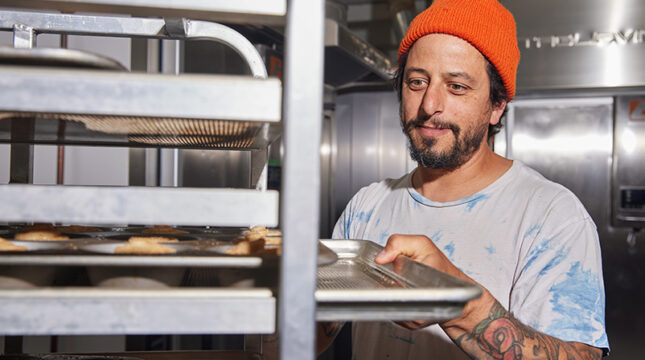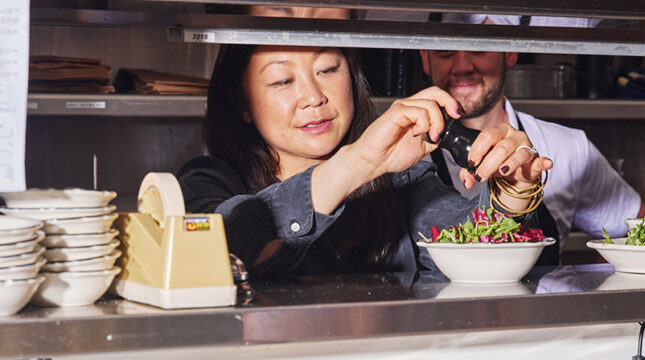Restaurant health inspections can be stressful for restaurant owners looking to put their best foot forward. Don’t let public health inspector visits leave you and your staff anxious. The key to acing your next review is to be prepared.
Follow this guide to ensure the health and safety of your guests and pass your next restaurant health inspection with flying colors.
Jump ahead to learn:
- What is a restaurant health inspection?
- What does a restaurant health inspector look for?
- How to manage the health inspector
- Restaurant health inspection checklist: 13 tips to help you stay ready
- What happens when a restaurant fails a health inspection?
- How NEXT helps restaurant business owners thrive
What is a restaurant health inspection?
Restaurant rules and regulations apply during storage, production, processing, preparing and packaging food to help keep the public safe. Health inspection reports for restaurants are a part of this process. Regular restaurant inspections aim to reduce and prevent conditions that could contribute to foodborne illness.
The U.S. Food and Drug Administration (FDA) Food Code helps states regulate restaurants, grocery stores and institutions that serve food such as nursing homes. However, no single national code exists.
If you own a restaurant, food stand, food truck or publicly sell prepared food of any kind, you must consult your local health department for food code regulations in your state. The FDA has a guide to help you find your state’s health food code.
Typically, fast food and full-service restaurants can expect a state restaurant health inspection every six months. A seasonal restaurant might experience just one review per year.
What does a restaurant health inspector look for?
Restaurant health inspection guidelines vary by state. However, an inspector will generally check for:
- Proper handwashing
- “Use-by” date labels on ingredients
- Appropriate temperatures of cooked food
- Cross-contamination between raw, cooked and ready-to-serve food
- Temperature regulation of coolers and freezers
- Cleanliness of floors, walls and ceilings
- Signs of pests
Inspectors are there to enforce food codes and educate staff on proper food safety techniques. They tend to focus on potentially hazardous foods that require specific time and temperature maintenance, but non-critical items can still create a problem for your inspection report.
Be sure to include a section on food safety in your restaurant employee handbook. It will help your staff remain up-to-date on proper food handling safety.
How to manage the health inspector
Imagine this: You’re in the middle of busy service, and the restaurant health inspector has just walked in. Though you may be busy and concerned, these tips can help your health inspection go more smoothly:
- Verify the inspector’s credentials. The public health inspector should offer their credentials voluntarily, but ask if you’re not sure. You can also contact your local department of health inspection for verification if you suspect a scam.
- Clean up workstations and public spaces. If the inspector sees your employees actively cleaning, they are more likely to believe it is standard procedure.
- Check cooking and cold storage temperatures. Check to make sure all of your food storage is set to the proper temperature.
- Be professional and polite. Your inspection is more likely to go well if the inspector feels that you take them seriously and treat them respectfully.
- Follow the inspector. If the inspector has concerns, you’ll want to see any potential violations first-hand. It’s also an opportunity to ask for clarification or specific examples to help you find solutions.
- Be responsive. If possible, act immediately to correct any problems the health inspector finds.
- Sign the inspection report. Your signature doesn’t indicate that you agree with the inspector’s findings. However, it serves as evidence that you received a copy of the health code violation list and report.
- Don’t offer the inspector any food or beverages. It could be interpreted as bribery to influence the inspection outcome. Instead, be cordial, pleasant and professional.
Restaurant health inspection checklist: 13 tips to help you stay ready
One way to stay ahead of the health inspector is to make a restaurant health inspection checklist. Use it to make every day feel like health inspection day.
Your checklist should include a review of best practices for food storage, food preparation and cooking, serving food to customers, personal hygiene and pest control.
Appoint an employee to act as a city health inspector every morning.They can look for and resolve problems ahead of time to help your restaurant stay prepared for a stellar health inspection report.
These 13 tips will help you and your staff prepare for a successful restaurant health inspection:
1. Set expectations
Make sure all employees understand your expectations for the restaurant. Spell out your priorities and cleanliness standards in your employee handbook and review them frequently.
2. Delegate a daily maintenance schedule
Assign specific employees ownership over cleaning walk-ins, counters, floors and other restaurant spaces.
3. Make sure each employee has a food handlers card
Some states require every employee who handles, prepares or serves food to have a food handlers card. It ensures each employee receives adequate training in food safety, preparation, sanitation and storage.
4. Know the requirements for a food manager’s certification
Not to be confused with a food handlers card, many states require one or more employees at a restaurant to have a food manager’s certification. It includes more food safety training and knowledge and is typically reserved for staff in supervisory roles.
5. Place food safety posters in visible areas
Visual reminders help employees think about food safety priorities like handwashing and safe cooking temperatures.
6. Establish regular training
Keep your staff updated with regular safety training sessions to remind them of FDA and state-specific standards.
7. Quiz the staff
Periodically ask employees safety and sanitation regulation questions. Prepare a refresher session if necessary.
8. Look at your restaurant from the outside in
Evaluate your restaurant the way a customer would see it. Does the restaurant’s exterior suggest attention to detail? How do the floors and walls look when you walk in? Would you want to use the silverware? Ask a friend to evaluate it honestly and provide feedback.
9. Internal surprise inspections
Conduct an unannounced inspection to catch and remedy violations before an inspector does.
10. Review past inspections
Past health inspection reports offer a guide to improvements. Distribute them to employees so they’re aware of weak spots.
11. Correct employee mistakes
If you observe an employee incorrectly handling food, guide them on the spot. Keep it positive so they feel empowered to perform properly in the future.
12. Refresh yourself on the food code
Review the FDA Food Code and your local health department food code requirements regularly to ensure you’re following the most up-to-date procedures.
13. Send sick employees home
As inconvenient as covering a shift is, sending a sick employee home is preferable to a possible food contamination incident.
What happens when a restaurant fails a health inspection?
It depends on the severity of the violation:
- Minor violations such as improper labeling or unkempt furniture generally allow you to correct the issue. They don’t typically come with a financial penalty, but you will have a follow-up inspection. These can serve as a wake-up call to educate your staff and stress the importance of food safety.
- Major violations include cross-contamination or sick restaurant staff. Health inspection grades are publicly posted. Some cities require them posted in the restaurant. You might face a fine or be forced to close your restaurant temporarily or permanently.
How NEXT helps restaurant business owners thrive
NEXT has served over 10,000 food businesses with tailored, accessible and always-on restaurant insurance, catering insurance, coverage for bakeries, and insurance protection for cafes and coffee shops.
Get just the right amount of food and beverage business insurance, such as general liability, workers’ compensation and commercial property insurance to help protect your food service business from a variety of risks, including:
- Foodborne illness
- Equipment malfunction
- Property damage
- Injuries
- Workplace accidents
- Temporary business closures
- Auto accidents
Customize and combine policies based on your business' unique risks. Get a free quote and buy coverage in under 10 minutes. Access your policy, file a claim and get an instant certificate of insurance 24/7.
Start a free quote with NEXT.






